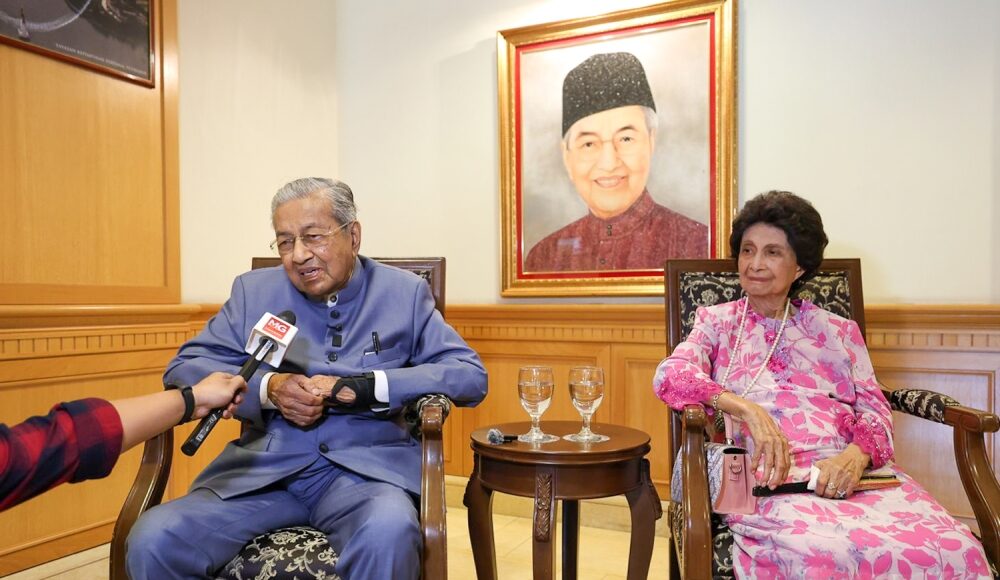JULY 12 — I’ve been rooted in Malaysia since ‘98. Long enough to understand that everyone here, absolutely everyone, carries an opinion about him. The man who, against every global financial pundit’s dire warning, pegged the ringgit. The one who effectively told the IMF to take their austerity sermons and preach them to someone else. He built highways that snaked through the land, brought forth twin towers that seemed to slice the very clouds, and conjured an entire administrative capital from what was once just a stretch of plantation. Depending on who you ask, he was a grand visionary, a ruthless pragmatist, a nation-builder, or something far more complex. But today? Today wasn’t about the grand narratives.
July 10 marked his hundredth birthday.
There’s an old saw about meeting your heroes, or your villains. The moment you do, they shed their mythic armor. They stop being convenient symbols and become, simply, painfully human. Yet there I was, walking into what amounted to history’s living room, a small offering tucked under my arm: my book, No Boundaries, a rumination on the peculiar beauty of cricket.
I wasn’t expecting a coronation or a drum roll. What truly disarmed me was this: as I stepped inside, the hundred-year-old man, this titan of Southeast Asian politics, slowly, deliberately, rose to his feet. He offered a handshake that was firm, not fragile, his eyes meeting mine with a surprising, genuine warmth. This was a man who once stood before the United Nations and frankly scolded the West for its double standards, who navigated decades of political intrigue with the precise cunning of a chess grandmaster. And he stood up for me. A quiet, utterly unpretentious gesture from a man who, by any measure, had long since earned the right to be entirely unbothered. It was, in a word, disorienting.
Tun Dr Mahathir Mohamad and his wife Tun Dr Siti Hasmah Mohd Ali are seen during a meet and greet with the public at the Perdana Leadership Foundation, Putrajaya, in celebration of his 100th birthday July 10, 2025. — Picture by Raymond Manuel
Before arriving, I’d cleared a small culinary detail with his son, a friend: would he be open to some appams for the celebration? “Yes, please,” came the immediate, enthusiastic reply. “They all adore the appams from Aliyaa.” And who wouldn’t? Hot, sweet, fragrant with coconut, the kind that practically melt the moment they touch your tongue. We brought a small crew to prepare them fresh, because to serve an appam otherwise would be a minor culinary tragedy.
After the exchange of the book, he flipped through its pages, his fingers tracing the images and words. Then, without a prompt, he began to spin a yarn. Not about statecraft or global economics, but about cricket. He recalled being a young man, out on the field, when a ball came hurtling towards him. Pure instinct took over. He simply extended his hand and caught it clean. The whole field, he recounted, erupted. They told him he was destined for cricket, that he possessed the reflexes of a natural athlete. He offered a light chuckle, a dry, knowing sound, noting he probably ended up a better politician in the end.
He painted the scene with such vividness, I could almost conjure the echo of his teammates’ laughter across the decades. I could practically feel the sun glinting off old bat handles, sense the raw, electric rush of youth coursing through veins that now pulsed slower, yes, but still thrummed with a century of memory, hard-won wisdom, and the immeasurable, often brutal, weight of leadership.
In those few minutes, he managed to put me entirely at ease. Perhaps that’s the quiet artistry of a formidable politician — the innate ability to forge an instant connection, to make you feel, for that fleeting moment, like you’re the sole, most important person in the room. But this exchange didn’t feel like a political manoeuvre. It felt, unvarnished and undeniable, human.
I requested a portrait. He nodded, and again, rose, straightening slightly, a silent request to look his best. I didn’t linger. Just two swift, quiet clicks of the camera. I had no desire to intrude further on his family’s private moment, no wish to pierce the simple, profound peace that settled over that room — the soft murmur of conversation, the gentle clinking of plates, an old man settling back into his chair, my book about cricket resting in his hands.
As I stepped back into the Kuala Lumpur night, I reflected on the man I’d just encountered. Over a century of life, he’d been branded with a multitude of labels: leader, statesman, visionary, sometimes even a controversial figure. But in that room, at that advanced age, he was none of those things. He was simply a man. A grandfather, a father, an elder. A man who, a lifetime ago, caught a cricket ball, and perhaps, in that singular, perfect second, truly believed anything was possible.
And maybe, just maybe, that’s the true measure of a life well-lived: not just the monumental achievements, but the enduring belief, even in the smallest of moments, that you can truly catch whatever life throws at you. And then, with quiet determination, spending a lifetime proving it. Not just to yourself, but to everyone watching.
* This is the personal opinion of the writer or publication and does not necessarily represent the views of Malay Mail.





